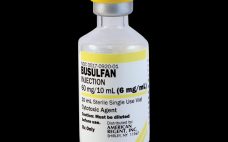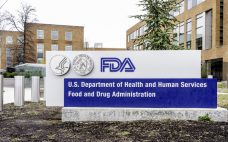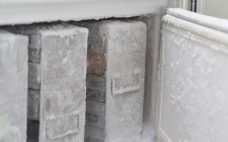CRISPR Therapeutics says the conditioning agent busulfan is unlikely to be the cause of adverse events that prompted Bluebird Bio to halt LentiGlobin trials. As a medicine busulfan is used to treat chronic myelogenous leukemia. It works by slowing or stopping the growth of cancerous cells. It is also used in cell and gene therapy as a conditioning agent to destroy bone marrow to prepare patients for transplant. Busulfan hit the headlines this month after Bluebird Bio started investigating it as…

Regulations
Busulfan role in Bluebird’s woes could impact gene therapy sector
Cell and gene therapy developers will have a close eye on cancer cases linked to Bluebird Bio’s LentiGlobin, say analysts. Earlier this month Bluebird halted two trials of LentiGlobin in sickle cell disease – specifically HGB 206 NCT02140554 and HGB 210 NCT04293185. It said the decision was prompted by a case of acute myeloid leukemia (AML) in a patient in group A of the Phase I/II HGB-206 study and a case of myelodysplastic syndrome (MDS) in a patient in Group C of the…
COVID-19 MAbs should be made with combination in mind says US FDA
Monoclonal antibody (mAb) manufacturers aiming for an EUA should prepare for their SARS-CoV-2 therapies to be combined with others, according to the US FDA. The US regulator issued the advice in guidance this week in which it also urged developers to collaborate and share data. The FDA said, “Strongly recommends that individual monoclonal antibody products be developed with the expectation that they will be combined with one or more monoclonal antibody products that bind to different epitopes to minimize the…
Bluebird Bio investigating potential vector role in AML and MDS cases
Bluebird Bio’s suspension of trials of its sickle cell gene therapy LentiGlobin has put the vector used to make it in the spotlight. The US biotech announced the temporary suspension of two LentiGlobin trials – specifically HGB 206 NCT02140554 and HGB 210 NCT04293185 – this week. It said the measure was prompted by reports a patient in group A of the Phase I/II HGB-206 study treated with the therapy five years ago had developed acute myeloid leukemia (AML). Bluebird also…
BMS gearing up to make Breyanzi at Bothell cell therapy plant
Bristol Myers-Squibb (BMS) has set a 24-day production target for Breyanzi and set up a digital platform to let physicians and patients track manufacture of the lymphoma cell therapy in real-time. The US Food and Drug Administration (FDA) cleared Breyanzi (lisocabtagene maraleucel; liso-cel) for the treatment of adults with relapsed or refractory (R/R) large B-cell lymphoma this month. A BMS spokeswoman told us “BMS plans to manufacture Breyanzi for each individual patient at its state-of-the-art cellular immunotherapy manufacturing facilities, initially…
Podcast: Systemic racism in the biomanufacturing space
Black and minority workers are consistently overlooked in the biomanufacturing industry due to unconscious – or perhaps conscious – racism, LucasPye Bio CEO Tia Lyles-Williams explains in The BioProcess Insider Expression System podcast. In the first episode of this new podcast series, Tia-Lyles Williams, CEO of LucasPye Bio, talks about diversity in the biopharma workplace and the hurdles that continue to hold back black and minority workers. Tia now leads a Philadelphia-based CDMO that recently raised $50 million in funding…
BMS cites Lonza plant inspection as factor in liso-cel’s ongoing delay
Lonza says observations made by the FDA at its Texas facility should not further hamper the already delayed approval of Bristol-Myers Squibb’s lymphoma CAR-T candidate liso-cel. Bristol-Myers Squibb (BMS) added lisocabtagene maraleucel (liso-cel), an autologous anti-CD19 chimeric antigen receptor (CAR) T‑cell targeting lymphoma, to its pipeline through its $74 billion acquisition of Celgene. Though a Biologics License Application (BLA) was submitted to the US Food and Drug Administration (FDA) in December 2019, COVID-19-related constraints pushed back regulatory inspections necessary for…
Issues at Italian CDMO leads to US approval delay for Novartis’ inclisiran
The US FDA has issued a complete response letter for Leqvio (inclisiran) due to ‘unresolved facility inspection-related conditions’ at a third-party site run by Corden Pharma. In October 2020, this publication reported the US approval of Novartis’ small interfering RNA (siRNA) therapy for the treatment of adults with hypercholesterolemia or mixed dyslipidemia, Leqvio, was dependent on a regulatory inspection at a third-party manufacturer in Italy. While Novartis spoke of regulatory delays of up to five months caused by COVID-19, it…
Some cold chain issues with Pfizer’s COVID vaccine but US confident of supplies
US military officials say several trays of Pfizer and BioNTech’s COVID-19 vaccine needed to be replaced after being stored at excessively cold temperatures. Details of the replacement were disclosed yesterday during a press conference about efforts to roll out the vaccine. General Gustave F. Perna, who is running the US’ Operation Warp Speed (OWS), said some vaccine sent to California and Alabama was replaced after it was stored at a temperature lower than the recommended 70°C. “We had two trays…
BMS hit by FDA 483 with 6 observations at Washington CAR-T plant
The Form 483 is a further blow to the potential approval of Bristol-Myers Squibb’s lymphoma CAR-T candidate liso-cel, made at the Bothell, Washington facility. The form comes after the US Food and Drug Administration (FDA) visited the facility between October 7 and 16 and lists six heavily redacted observations made about manufacturing processes. These include failures in reviewing any unexplained discrepancies and questions around the reliability of Certificates of Analysis (COAs) from third-party vendors; problems with written records of investigations…










